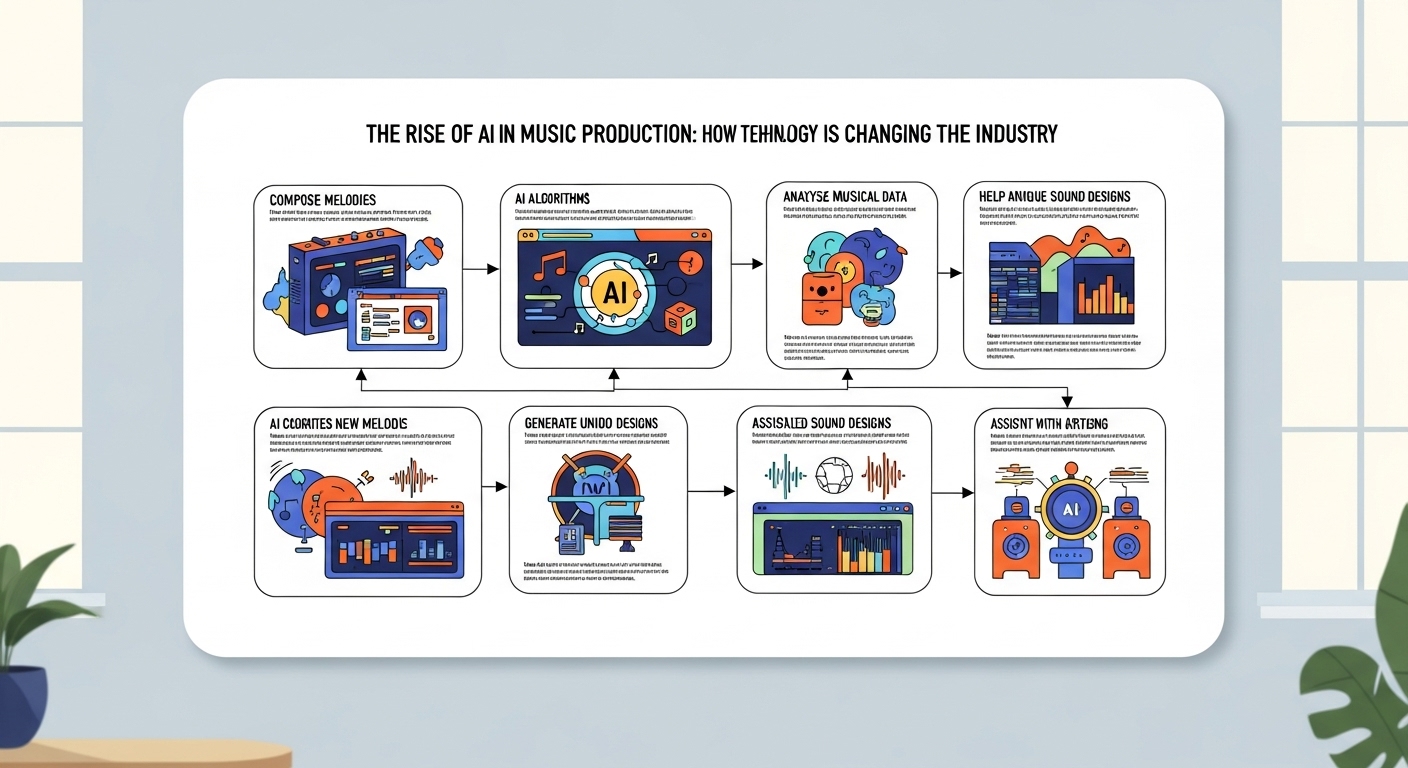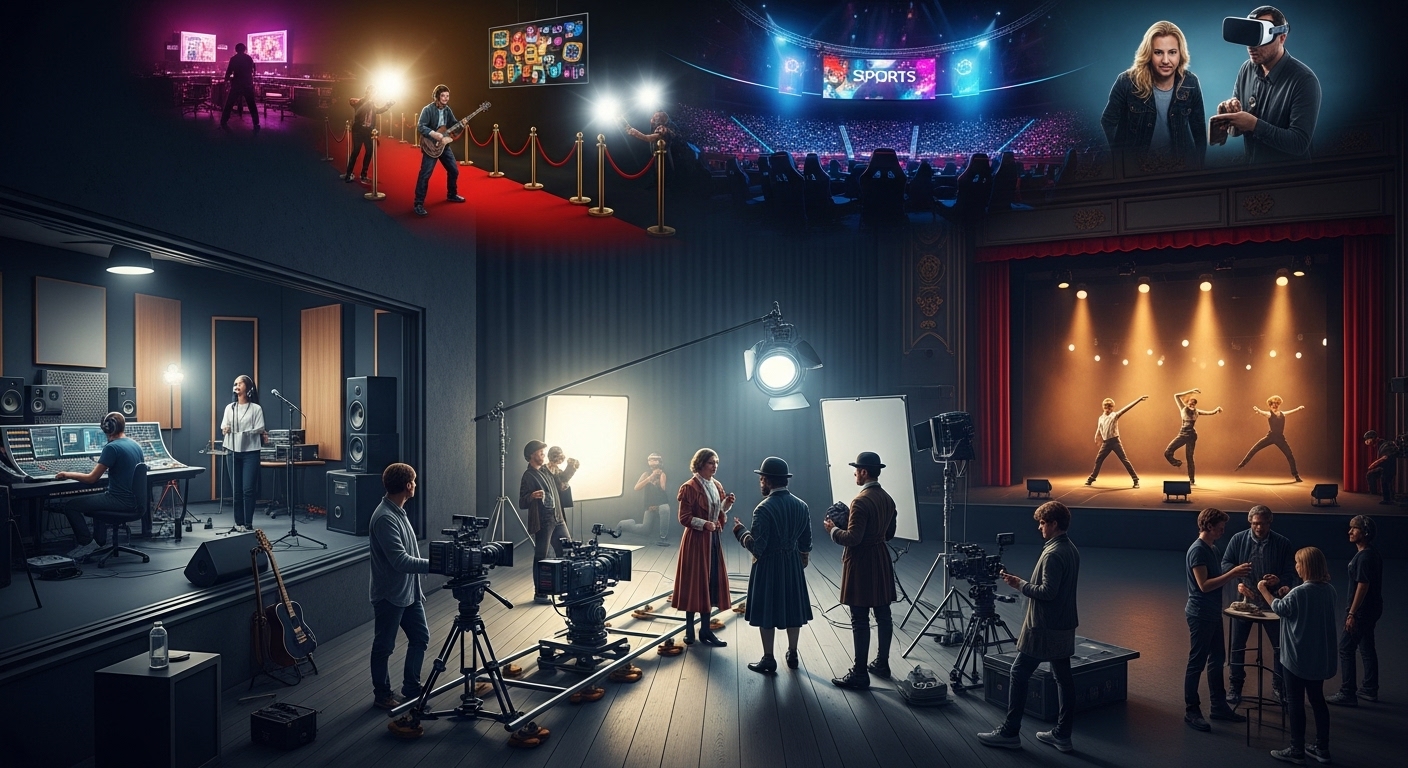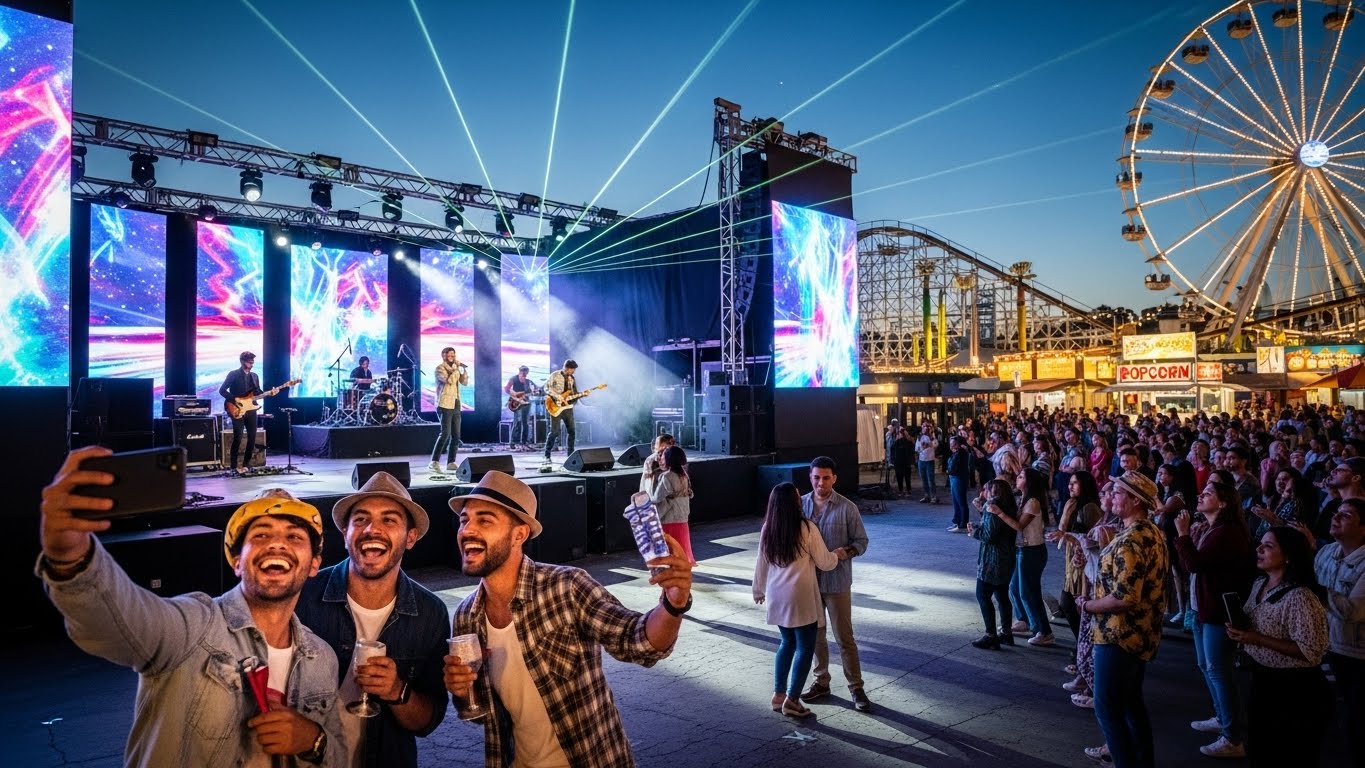The Rise of AI in Music Production: How Technology is Changing the Industry

In recent years, artificial intelligence (AI) has been making waves across various industries, and music production is no exception. From composing melodies to mastering tracks, AI is reshaping how music is created, produced, and experienced. This technological revolution is opening new doors for musicians, producers, and listeners alike, transforming the creative process and the business landscape of the music world.
AI as a Creative Partner
One of the most exciting developments in music production is the use of AI as a creative tool. AI-powered software can now compose original music, generate harmonies, and even suggest lyrics. These systems analyze vast amounts of musical data to understand patterns, genres, and styles, enabling them to create compositions that range from classical to contemporary genres.
For musicians, this means having an intelligent collaborator that can spark ideas or provide a starting point for new tracks. Instead of replacing human creativity, AI often enhances it by offering fresh perspectives and reducing the time spent on repetitive tasks.
Streamlining Production and Mixing
Beyond composition, AI is transforming the technical side of music production. Mixing and mastering are critical steps in creating polished songs, but they often require specialized skills and hours of meticulous work. AI tools can automate many of these processes by analyzing the audio and making adjustments to balance levels, equalize frequencies, and enhance overall sound quality.
This democratizes music production, allowing independent artists and smaller studios to achieve professional results without extensive budgets or expertise. The accessibility of AI-powered production tools is leveling the playing field in the industry.
Personalized Music Experiences
AI is also revolutionizing how audiences discover and engage with music. Streaming platforms use AI algorithms to analyze listening habits and recommend songs tailored to individual tastes. This personalization helps listeners find new artists and genres that align with their preferences, creating a more engaging and satisfying experience.
Moreover, AI is enabling the creation of adaptive soundtracks that change in real-time based on user interaction, mood, or environment. This innovation opens possibilities for immersive experiences in gaming, virtual reality, and live performances.
Ethical and Artistic Considerations
While the rise of AI in music production brings numerous benefits, it also raises important questions. Who owns the rights to music created or heavily influenced by AI? How does AI impact the authenticity of artistic expression? These debates are ongoing and highlight the need for clear guidelines and thoughtful integration of technology in the creative process.
The Future of Music Production
As AI continues to evolve, its role in music production will likely expand. We can expect more sophisticated tools that blend human intuition with machine precision, creating music that pushes boundaries and explores new sonic landscapes. For artists, embracing AI means not only adapting to change but also harnessing its potential to innovate and inspire.
In conclusion, AI is reshaping the music industry in profound ways—from composition and production to distribution and consumption. It offers exciting opportunities for creativity, efficiency, and personalization, while also challenging traditional notions of artistry and authorship. The rise of AI in music production marks a new era where technology and human creativity coexist, shaping the soundtrack of the future.



